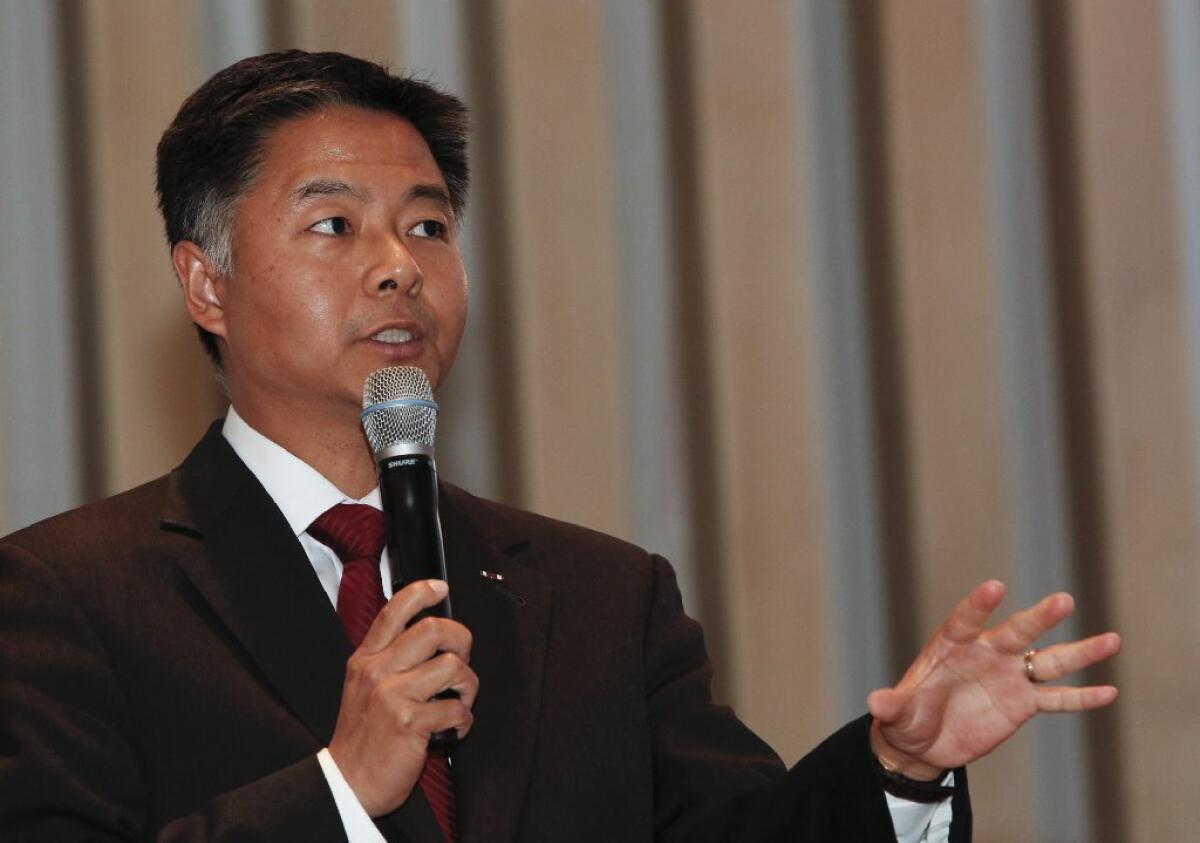UCLA superbug: Lawmaker asks Congress to investigate FDA response

- Share via
Prompted by the UCLA superbug outbreak, a federal lawmaker is calling on Congress to investigate what the U.S. Food and Drug Administration and device makers are doing to prevent further patient deaths and infections.
In a letter sent Monday to the House Committee on Oversight and Government Reform, Rep. Ted Lieu (D-Torrance) said outbreaks related to contaminated medical scopes “have national security ramifications.”
Last week, UCLA’s Ronald Reagan Medical Center became the latest in a string of U.S. hospitals suffering outbreaks involving CRE and other deadly bacteria.
Two patients died in connection with the UCLA incident, five more were infected and 179 others may have been exposed from October to January after undergoing a procedure for ERCP, or endoscopic retrograde cholangiopancreatography.
In an interview, Lieu noted that President Obama issued an executive order in September making it a national security priority to combat antibiotic-resistant bacteria such as CRE, which stands for carbapenem-resistant Enterobacteriaceae.
Lieu said an FDA safety alert issued last week following the UCLA incident provides no assurance that further outbreaks can be prevented.
The FDA acknowledged that cleaning the ERCP duodenoscopes to the manufacturers’ specifications may not remove all of the deadly bacteria that can be passed from patient to patient.
“While federal agencies such as the Centers for Disease Control and Prevention are combating superbugs, the current recommended sterilization procedures would continue to result in superbug outbreaks and deaths,” Lieu said.
The duodenoscopes involved in the outbreaks have an “elevator channel” that doctors use to bend the device inside the digestive tract and allow for attachments such as catheters or guide wires. The FDA warned that bacteria can build up in those tiny crevices.
“Some parts of the scopes may be extremely difficult to access and effective cleaning of all areas of the duodenoscope may not be possible,” the FDA warned last week.
Nonetheless, the agency has defended its response and said it’s still determining what more can be done to reduce the risk of infection. The FDA said an engineering assessment of device design is ongoing.
A spokeswoman for the FDA said Friday that pulling ERCP devices from the market would pose more harm to public health by removing a lifesaving medical instrument.
“Of the more than 500,000 procedures performed in the U.S. each year using duodenoscopes, only a small fraction have been associated with transmission of antibiotic-resistant organisms,” the agency said.
There are no alternative devices for ERCP, according to the FDA, and the procedure “is the least invasive way of draining fluids from pancreatic and biliary ducts blocked by cancer, gallstones and other conditions.”
Olympus Corp. of the Americas, the leading maker of duodenoscopes, said it is monitoring the issue of patient infections closely, and it has provided customers with additional educational materials and video demonstrations on equipment cleaning.
“We are working with the FDA, relevant medical societies and our customers regarding these concerns,” the company said in a statement.
Lieu succeeded Henry Waxman in Congress last month, and he serves on the House oversight committee. Prior to going to Washington, Lieu worked on many health-related issues in the California Legislature.
Let us know if you have been affected by the outbreak at UCLA
Twitter: @chadterhune
More to Read
Inside the business of entertainment
The Wide Shot brings you news, analysis and insights on everything from streaming wars to production — and what it all means for the future.
You may occasionally receive promotional content from the Los Angeles Times.











